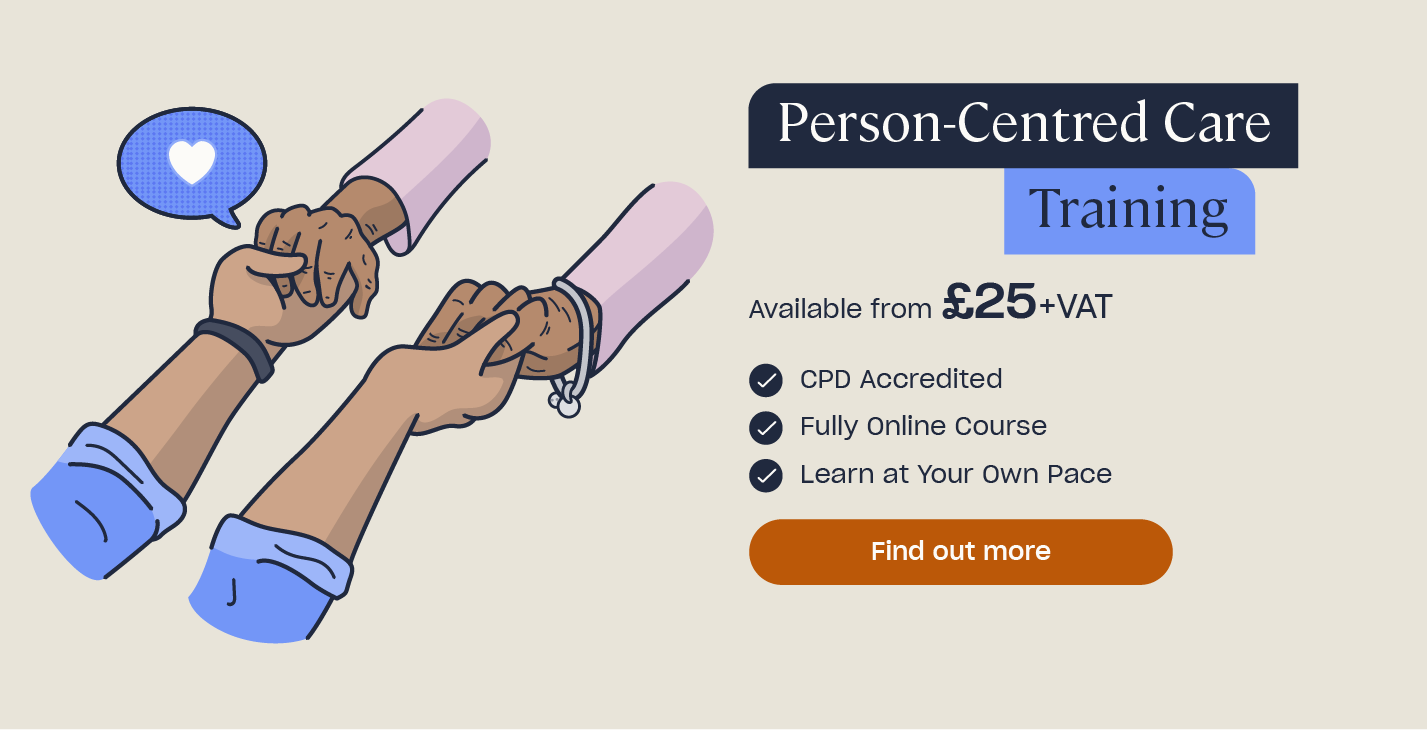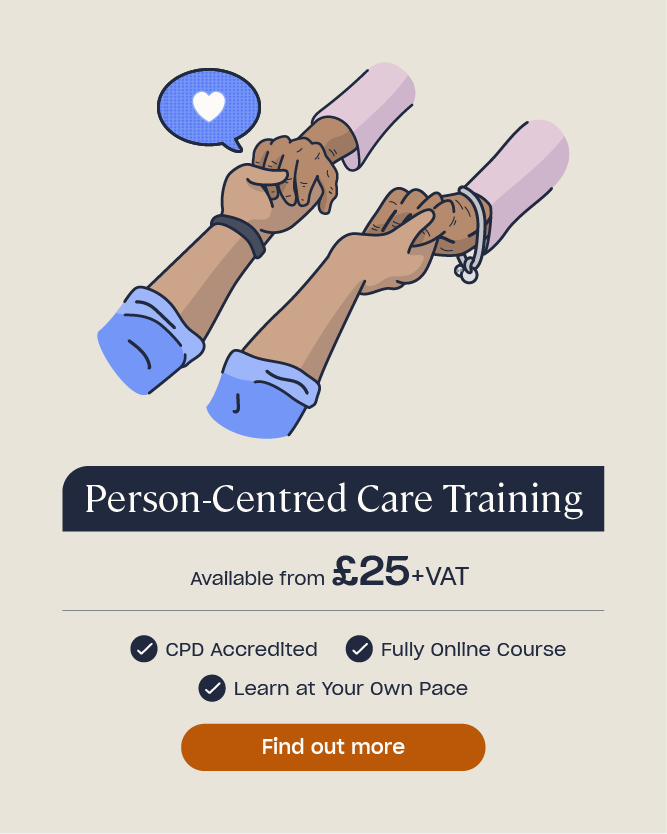What is the CQC and Why are KLOEs Important in Care?
Established in 2009, the Care Quality Commission (CQC) regulates and inspects health and social care services in England. As a public body of the Department of Health and Social Care, the CQC ensures that all health and social care services meet fundamental standards of quality and safety, and publishes their findings so that people can choose the best care suitable for them.
Everybody who works in health and social care should be aware of the CQC and must be able to demonstrate that they are providing the best level of care. This means having a knowledge of what the CQC does, the standards it sets for social care providers to meet, and how the CQC uses key lines of enquiry (KLOEs) to check that these high standards are met.
What is the CQC & What Does it Do?
The Care Quality Commission is the independent regulator of health and social care in England. They aim to ensure that all health and social care providers deliver safe, effective, and compassionate care that is of the highest quality. If a care provider doesn’t meet the CQC standards, they encourage them to improve and take action to protect those they provide care to.
The role of the CQC is vast: they register care providers, monitor and inspect their services, take action to protect people and speak with an independent voice about any major quality issues that may occur in health and social care. The work of the CQC is incredibly important: it helps to protect the rights of at risk people and listen to, and act, on their experiences. It does this through it’s four values: excellence, caring, integrity, and teamwork.
The CQC visits all health and social care providers as part of their regular regulation and inspection programme. This includes hospitals, GPs and doctors, care homes, and mental health services, among others. They then provide the establishment with one of four ratings which can help people compare and make choices about their care. The four ratings are outstanding, good, requires improvement, and inadequate. If a rating is inadequate, the CQC will take action against the organisation or the person that runs it.

What are the CQC Fundamental Standards?
The CQC have developed fundamental standards to help them with inspecting and regulating health and social care services. These standards set out what good and outstanding levels of care look like, and provide a quality benchmark that the level of care must never fall below.
Everyone who receives care has the right to expect the following thirteen standards:
- Person-centred care: people should receive care or treatment that is tailored to them, meeting their needs and preferences.
- Dignity and respect: everyone must be treated with dignity and respect at all times. This includes treating everyone equally, giving privacy when it is wanted or needed, and giving support to enable people to remain independent where possible.
- Consent: people must give their consent before they receive any care or treatment. If the person cannot consent, you must receive consent from the person acting on their behalf.
- Safety: nobody should be given unsafe care or treatment, or be put at risk of harm that could be avoided. Health and social care providers must ensure that their staff have the skills, experience, qualifications and competence to keep people safe.
- Safeguarding from abuse: nobody should suffer any form of abuse, neglect, or improper treatment when they are receiving their care. This includes unnecessary or disproportionate restraint, degradation, or inappropriate limits on freedom.
- Food and drink: anyone receiving care or treatment must have enough to eat and drink when receiving it, in order to keep them in good health.
- Premises and equipment: equipment should be used and secured properly. Premises must be kept clean, looked after, and be suitable for treatment and care.
- Complaints: care providers should have a system in place for handling, and responding to, complaints. This includes investigating them thoroughly and taking action against problems.
- Good governance: care providers must have systems in place to check the quality and safety of their care. These governance systems must help the service to improve and reduce risks to people’s health, safety, and welfare.
- Staffing: staff must be given the necessary support, training and supervision needed for them to do their job and meet these standards. There also needs to be enough staff to meet the organisation’s needs.
- Fit and proper staff: the care provider must only employ people who can provide safe and appropriate care and treatment. This means having thorough safer recruitment procedures and appropriate checks in place.
- Duty of candour: care providers must be transparent and open with the person receiving care and treatment, including if anything goes wrong.
- Display of ratings: upon receiving a CQC rating, care providers must display it in a visible place. The establishment’s CQC report should also be available to receivers of care.

How Can Care Providers Prepare for CQC Inspections?
Adhering to the CQC standards will not only enable your establishment to achieve a high rating, it will also, more importantly, ensure that everyone receives the quality of care and treatment that they deserve.
For a CQC inspection, care establishments must be able to prove that they adhere to the fundamental standards. The inspections focus on the experiences that people have: inspectors will observe care and talk to people who receive care, as well as their family and carers. They will also look at records and speak with staff, as well as comparing against the regulations, to reach their judgements.
The CQC will not notify care establishments that they are visiting, unless there is good reason to. This ensures they can get the best picture of how the service operates. Most adult social care, hospital, and domiciliary care services will be inspected at least once a year. Because their inspections are unannounced, you don’t have to send the CQC any information before an inspection. However, they may ask for it during or after the visit, so maintaining accurate records is essential.
Learn more about what to expect from a CQC inspection here.
To ensure that you are ready for an inspection whenever one should occur, the CQC recommend the following:
- Submit notifications throughout the year, so they can get a clear picture of your service.
- Ensure the notifications give clear information about each event, and the actions taken to minimise risk and ensure good outcomes for people.
- Make people aware that you have ‘Please tell us about your experience’ forms on your website, so the CQC can see people’s experiences of your service.
- Always have up-to-date information available to help you demonstrate your compliance.
You should also consider, and prepare for, the key lines of enquiry that the CQC will pursue as part of their inspection.

What are the 5 KLOEs?
In order to meet their aim of ensuring that everyone receives safe, effective, high quality care, and to provide a framework for inspecting and regulating services, the CQC introduced KLOE as part of their inspection process. KLOE refers to key lines of enquiry, and the process centres around five key questions which inspectors use to determine whether a service is fulfilling their duties for care.
The five key lines of enquiry will determine whether a service is:
- Safe: are service users, staff, and visitors protected from abuse and harm?
- Effective: does everyone’s care, treatment, and support promote a good quality of life and achieve good outcomes?
- Caring: do staff involve people and treat them with compassion, respect, kindness, and dignity?
- Responsive: are services organised so that they meet people’s needs?
- Well-led: does the leadership, management, and governance of the organisation ensure that there is always high quality, person-centred care? Does it support learning and innovation? Does it promote a fair and open culture?
The inspectors will use prompts to investigate their enquiries and determine how a service operates and is performing. For example, to satisfy whether a service is safe, they can ask to see evidence of DBS checks or evidence that staffing levels and skill mix are planned, and reviewed, so that people receive safe care and treatment at all times. Alternatively, to determine whether a service is responsive, they will observe how the service is delivered and coordinated to be accessible and responsive to people with complex needs.
There is a wide range of prompts that the CQC can use to determine whether a service satisfies the KLOEs and provide a rating, both for healthcare and for adult social care services. Each KLOE has its own requirements and evidence can be gathered anywhere from observations to requesting evidence of your reporting systems. How your health or social care establishment performs on KLOEs is really important for your rating, so remaining aware of what the CQC looks for and delivering high quality services at all times is essential.
The CQC regulates and inspects health and social care services in England and helps people to choose where they want to receive their care. Remaining aware of KLOEs and their prompts, and always operating in accordance with the CQC fundamental standards, will ensure you are prepared for inspections and demonstrate your commitment to high quality, effective care.
Further Resources:
- Person-Centered Care Training
- What are the 6Cs in Care?
- What is Person Centred Care & Why is it Important?







